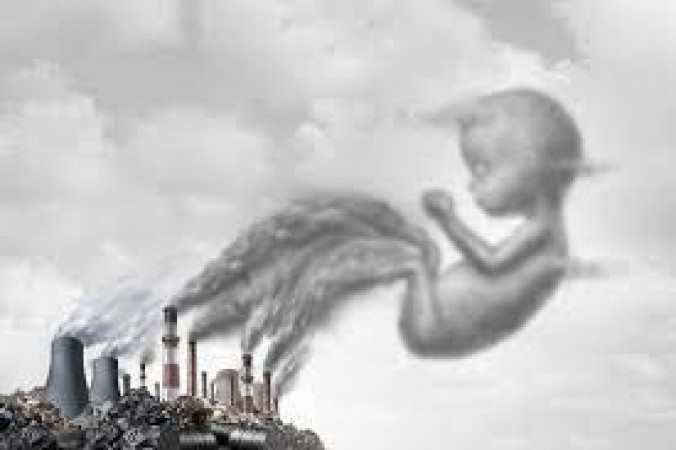
Air pollution, a peril that often lurks in the background, is increasingly taking center stage as a health crisis. The situation has become so dire that some doctors are likening it to a "mini lockdown" for our well-being. In this article, we delve into the alarming impact of air pollution, especially on fetuses and children, and why it's time to take decisive action.
Air pollution, often invisible to the naked eye, is composed of harmful particulate matter, toxic gases, and pollutants that enter our lungs with every breath. It's an issue that transcends borders and affects people of all ages. However, it's our youngest and most vulnerable members of society who bear the brunt of its consequences.
Recent research has unveiled a frightening connection between air pollution and adverse health effects in children. Exposure to polluted air has been linked to a wide range of problems, from respiratory issues to developmental delays. But perhaps most concerning is the impact on the developing fetus.
During pregnancy, a mother's exposure to air pollution can have devastating consequences. It's not only the mother's health that's at stake but also the future well-being of the child. Pollutants like fine particulate matter (PM2.5) can easily cross the placenta, affecting the developing baby's organs and brain.
Air pollution is a silent assailant on children's respiratory health. Asthma rates are soaring, and many children are forced to carry inhalers as a lifeline. But is it fair that children should bear this burden?
Research suggests that exposure to air pollution can lead to cognitive impairments in children. It's as if their young minds are being shrouded in a toxic haze, hindering their learning and development.
Dr. Emily Watson, a leading pediatrician, has a stark warning for us. She likens the current situation to a "mini lockdown." It's not due to a virus, but rather an invisible enemy in the air. Dr. Watson implores us to take this health crisis seriously, especially for the sake of our children.
While we may not be able to control the weather or geography, we can take action to mitigate the effects of air pollution. Simple measures like using air purifiers, avoiding outdoor activities on high pollution days, and advocating for clean energy can make a significant difference.
The alarming state of our environment is a direct consequence of human activities. As a society, we need to take responsibility for our actions and strive for a cleaner, healthier future.
Our children deserve better. It's our responsibility to protect their future by addressing the issue of air pollution. We owe it to them to provide an environment where they can thrive, breathe clean air, and grow without the looming threat of pollution. In conclusion, the situation regarding air pollution is reaching a critical point, with doctors even likening it to a "mini lockdown" for our health. The impact on fetuses and children is particularly alarming, with long-lasting consequences for their well-being. It's high time we take meaningful steps to combat air pollution and protect our most vulnerable members of society.
WHO's Warning: Delhi's PM2.5 Pollution Reaches Alarming Levels, Exceeding Guidelines by 100 Times
Newborn babies are suffocating due to air pollution, know how to save them?
Ara Sheikh's Temple Desecration: Urinating Near Shiv Ling Triggers Outrage